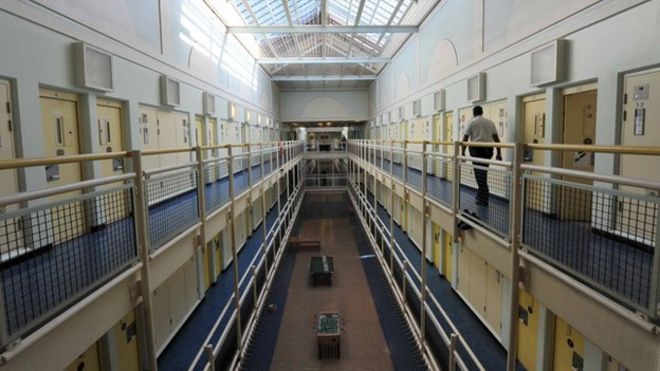Only 25% of former prisoners in England and Wales are employed after release, and 50% of employers would not consider hiring someone who had been to prison
Dr Anna Kotova writes for the Social Sciences Birmingham Forum:
In a recent televised interview, Rory Stewart, the UK’s Minister of State for Prisons, spoke about the state of incarceration with a focus on HMP Nottingham, where inmates have recently taken their own lives.
Stewart appeared to recognise that in order to fix prisons, troubled by record levels of self-harm and suicides, the UK needs to look beyond the criminal justice system. He cited a need for more and better-trained prison staff.
When challenged with the question whether these proposals are simply a Band-Aid, the Minister talked about engaging with issues of social injustice, including lack of employment and poor mental health. He rightly noted that prisoners are behind fences, as the public rarely knows what prisons are like and who is in them.
So how can society be re-engaged?
Learning from Norway
More egalitarian societies – those that have lesser levels of extreme poverty and class divisions – also tend to be less punitive.
In Norway, prisons are underpinned by the principle of normalization. The Norwegian Correctional Service writes, “During the serving of a sentence, life inside will resemble life outside as much as possible.” Prisoners are not portrayed as evil monsters to be cast out of society: they even take part in televised political debates.
Norway also has a comparatively generous welfare state, free education, and other aspects of social justice. Its average household net-adjusted disposable income is $35,739, compared to $28,408 in the UK. While Norway should not be idealized, for it has its own problems such as issues with refugees, it is comparatively more egalitarian than England and Wales.
England and Wales remain exclusionary, with prisoners drawn from some of the most economically and socially excluded communities. Only about 25% of former prisoners in England and Wales are in employment after release. About half of employers would not consider hiring some who ad been to prison. By comparison, about 60-70% of first-time offenders in Norway obtain a job after release.
Removing “Us” v. “Them”
If the deep-rooted problems plaguing UK prisons are to be addressed, there must be fundamental social change. We need to learn to see prisoners as people – people who will return to our communities – rather than irredeemable “dangerous others”.
Why is Norway different? The key is the concept of Association Value. If a person is perceived as having a high Association Value – for example, being our own kin, having a recognisable social productivity, or expressing remorse – we are more likely to be less punitive. This is more difficult when prisoners are severely socially excluded, in terms of their employment, mental and physical health, class, and education. Such stark division between “Us” and “Them” makes it easier for society to cast prisoners aside as those who hold low Association Value.
“The buck absolutely stops with me,” Rory Stewart declared, taking responsibility for the future of our prisons. It is vital that he realizes that the problem is rooted not simply in funding but in fundamental issues of social injustice, and it is refreshing to see that the Minister has spoken openly about this.
He promised to take his interviewer, Channel 4’s Jon Snow, to HMP Nottingham in 12 months’ time. Let’s see how much the Minister’s open approach will have improved this prison and the prison system in general.


Interesting id imagine that it’s the same in Scotland. The reason why Scandinavia and Germany do better than us is because there you are a German or a Norwegian ect and that is it. Here we love subdivisions. Be it regional or class based often both. In Glasgow people talk practically a separate language from Edinbrugh. I used to have to translate what some Glaswegians where saying to my friends who spoke English as a second language at uni.